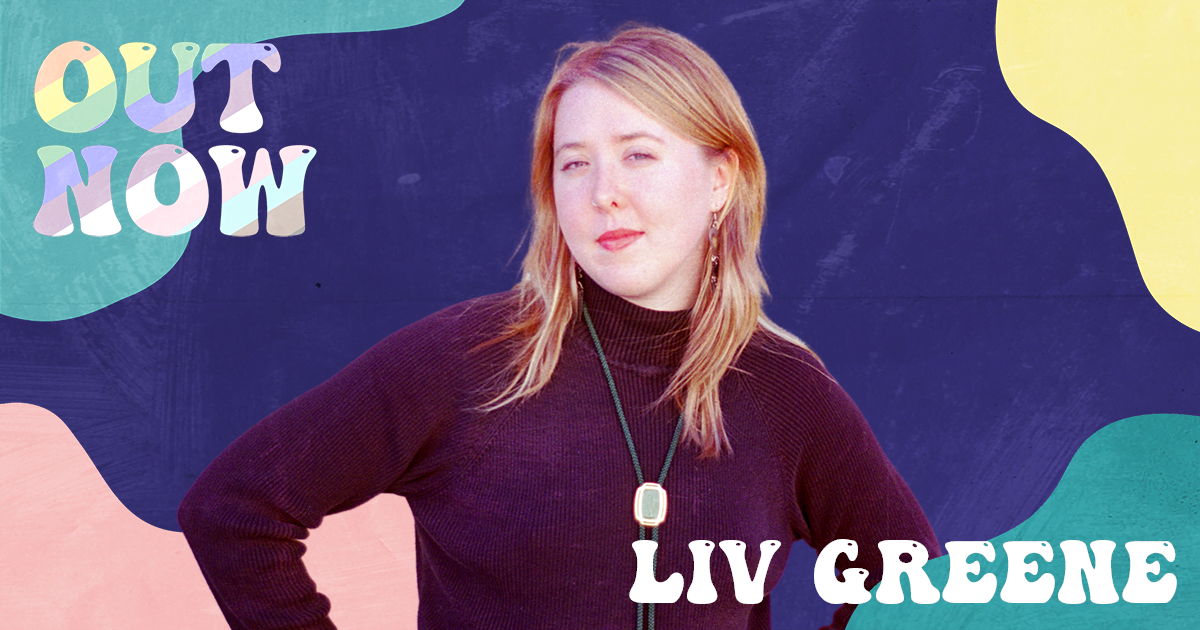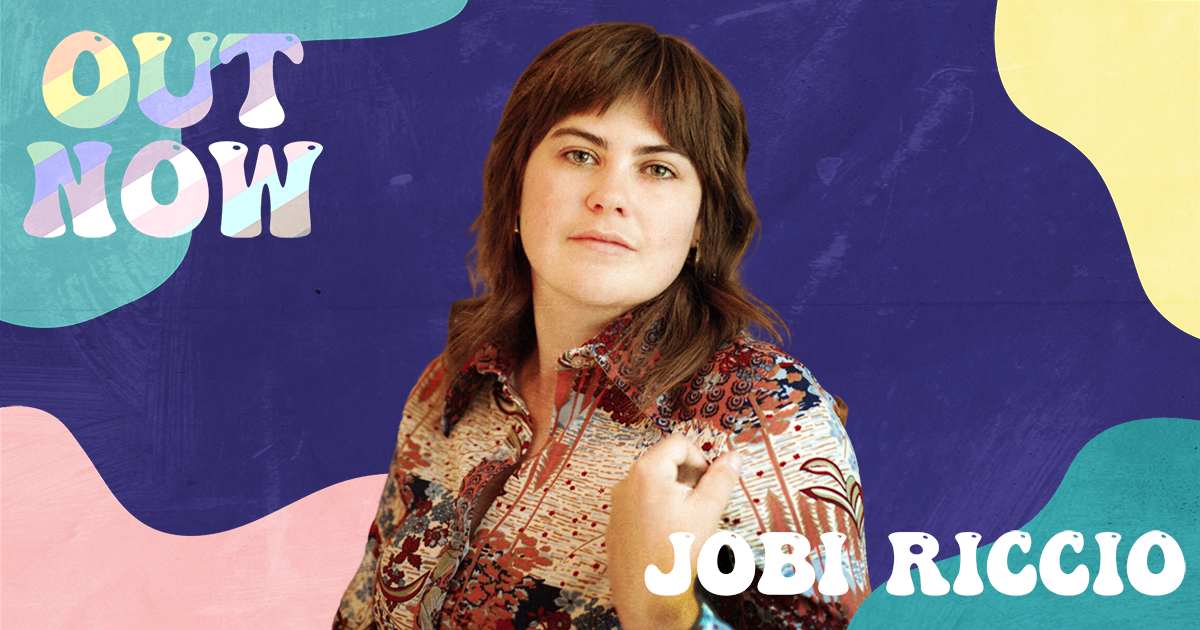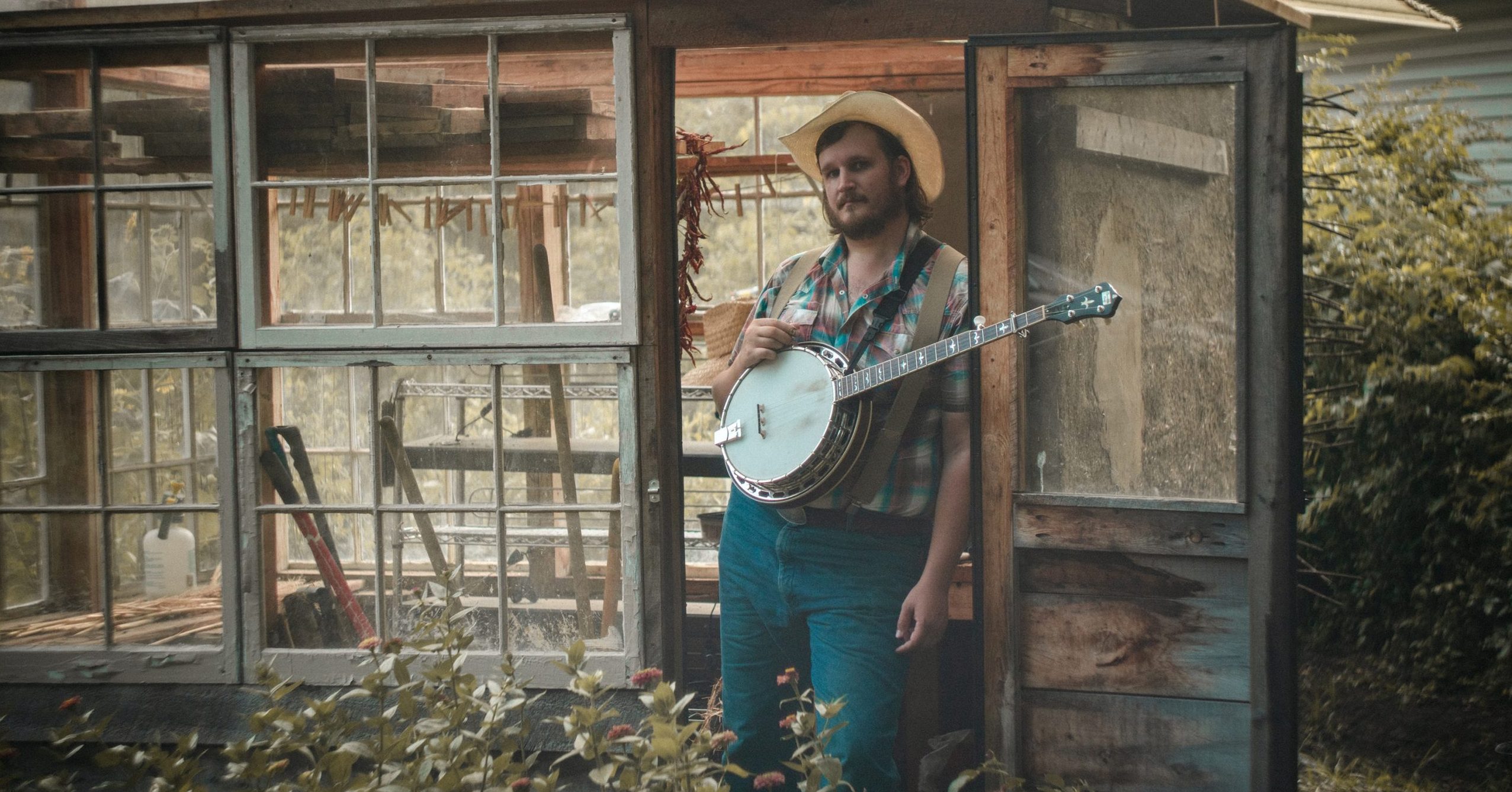For this edition of Out Now, we’re honored to introduce an artist I’ve known for years. Liv Greene and I met in 2017 at Interlochen Arts Academy. It’s incredible to watch artists like Liv, who have been dedicated to their craft for years, develop careers in the industry. Following our time at a small arts school in Northern Michigan, Liv and I both moved to Boston. After a year at Tufts, grappling between following a traditional path or following her intuition, she transferred to New England College of Music. And we both eventually found ourselves in Nashville.
I have known a small handful of individuals who took this path – following music and intuition from their teen years into adulthood. That kind of persistence and dedication is rare.
I’ve known Liv from before they were out to even their closest friends to now, a time when they are publicly vocal about their identity. To some, these things may seem small. But to teens, up-and-coming artists, and the queer community, it’s incredibly important.
Liv has long been one of the most talented artists I’ve known – even in their teen years. But years of persistence and dedication to their craft have sculpted their music and work into something polished, professional, and bound to take off if they continue on this path. If you don’t know their music, you’re in for a treat: sophisticated guitar lines soaring melodies and reflective lyrics. We are so proud to present Liv Greene for Out Now.
Why do you create music? – What’s more satisfying to you, the process or the outcome?
Liv Greene: The process! I think I make music because I have an ever-burning curiosity and desire to learn new things. Ever since I was 11 and first discovered my ravenous appetite for learning songs on the guitar, my passion has burned brightly and shifted focus a number of times. Recently, the process of recording is really fascinating to me. I am quite new to it overall, and I feel lucky to have some mentors that have really helped me wrap my head around the daunting mystery of it. My first record was produced by my friend and mentor Isa Burke, (you may have heard her shred electric guitar and fiddle with Aoife O’Donovan), and watching her work, as both a session musician and producer on that record, was beyond inspiring. This past year I’ve been lucky to work on a record with legendary engineer Matt Andrews. Matt’s become a friend as well as a mentor and the process of making music with him has taught me more than I can even put into words.
What is your current state of mind?
Recently, it’s not the most positive. With the accelerating climate crisis, I’ve been grappling with big picture plans and visions and considering how it all may need to change in a different world. For example, touring, while once a main dream for my career, now doesn’t feel like the most important thing to me anymore, especially given all the carbon emissions from flying and the gasoline needed to drive. While connecting with people over sharing music on tour feels really sacred to me, I think being intentional about it and how often I’m doing it feels like the only thing that makes sense. With how scary things are these days, I’ve been trying to zoom in on the close-range and try to make it better. Brighten a corner in the space I’m already in now. I’ve been focusing on the things that have always held me, and trying to be the best I can in return to them. My loved ones, family and friends, and my craft.
What would a “perfect day” look like for you?
As much as I love the road, a perfect day would probably be an off day at home. The groundedness of home is unparalleled. I’d wake up around 9, have some coffee and avocado toast, read my book (right now I’m reading this stunning queer novel, Swimming in the Dark), then go out for my favorite 6-mile skate route through the woods near my home (I love rollerskating, particularly trail skating), then come home, and get ready for the day. Once dressed for the day, I’d play some guitar, work on a half-written song or two.
My favorite way to work on songs is to pick up drafts and ponder them by improvising on them every few weeks until they take form. A perfect day of this would probably lead to a completed song and a demo, which I do on cassette on my Tascam portastudio 424mkii with an Ear Trumpet Labs Edwina mic. Four track demo-ing makes my heart happy. Something about the constraints, and the warmth and imperfection of tape, really helps to rise above the minutia and get to the heart of the song. I’d probably enjoy something tasty for lunch, maybe meet a friend or two for some antiquing or thrifting, and then end the day over delicious food with dear friends. Sharing songs, crafting, and drinking wine or tea on a night in, or dancing my boots off to motown or honky-tonk if on a night out in Nashville.
What’s the best advice you’ve ever gotten?
There are two in particular that come to mind. The first is songwriting related, and it’s something I first heard when I was 16 at Interlochen songwriting camp in northern Michigan. My instructor at the time, an amazing North Carolina-based songwriter and community builder named Cary Cooper, shared with us the words of Mary Gauthier: “Sing the song that only you can sing.” That message has stuck with me ever since, for its sobering simplicity and its reminder to look for the story you can tell best, the one on your own heart.
In terms of non-song-related advice, my friend Jack Schneider introduced me to the Stephen Covey quote, “The main thing is to keep the main thing the main thing.” This applies to production work, when you need to zoom out and make sure you haven’t lost the heart of the song, but also to life in general. If I’m ever getting too tied into or stressed over the details of something I try to remind myself, “It’s just music, focus on the music, enjoy it.”
Who are your favorite LGBTQ+ artists and bands?
This answer changes monthly, maybe even weekly, as we are so blessed to have so many artists who are out and proud these days. Growing up it was Brandi Carlile, and she will always be a huge influence for me not only as a writer and musician, but just as a person. Recently, it’s been a lot of my old friends/new friends/mentors, Jobi Riccio (killer classic-style songwriting meets honest new perspectives and modern production), Chappell Roan (kitschy, campy, brilliant pop artist), Olivia Barton and Corook (you may know the smash TikTok hit, “If I Were a Fish“), Mary Bragg (brilliant songwriting, production, and stunning vocals), Melissa Carper (queer woman queen of western swing/classic country), Rosie Tucker (brilliantly clever indie magic), and Izzy Heltai (indie-americana sad boy music that gets to the heart of it). For more pop, MUNA is also one of my all-time favorite bands, period, Saves the World being the record that got me into them. Their live shows are always a religious experience.
What does it mean to you to be an LGBTQ+ musician? And what are your release and touring plans for the next year?
Man, being an out LGBTQ+ musician means the world to me. Being queer is beautiful, it’s a blessing and a gift to be able to access the fullness of who you are without limitations, and I think it’s particularly special to me given how I am able to be proud of it after years of shame around it. Representation matters. I remember seeing Brandi Carlile when I was 14 and didn’t have any other tangible people I saw myself and my queerness in. In a lot of ways, seeing her live at such a young age helped me realize that it was ok to be me.
As for touring plans, you can catch me on the road this fall with fellow queer Americana artist Brittany Ann Tranbaugh, who just released an EP produced by Tyler Chester (Madison Cunningham) that’s damn good, as well as a couple shows in Tennessee in late October opening for one of my favorite songwriters, Margo Cilker. For release plans, I recently finished work on LP #2 and am burning with anticipation to get it out. It’s looking like spring of 2024. Good things take time.
Photo Credit: Courtesy of Liv Greene.


